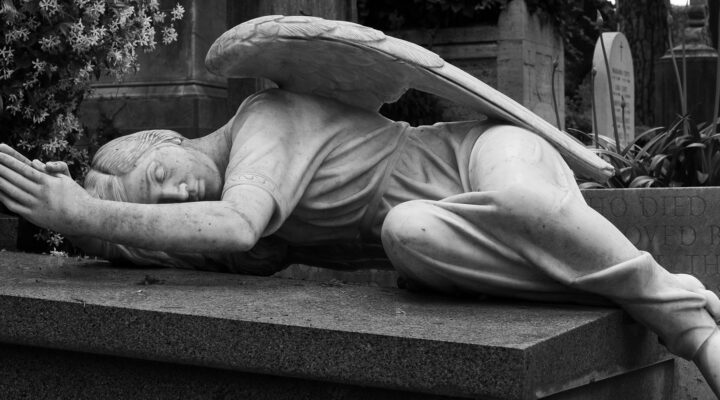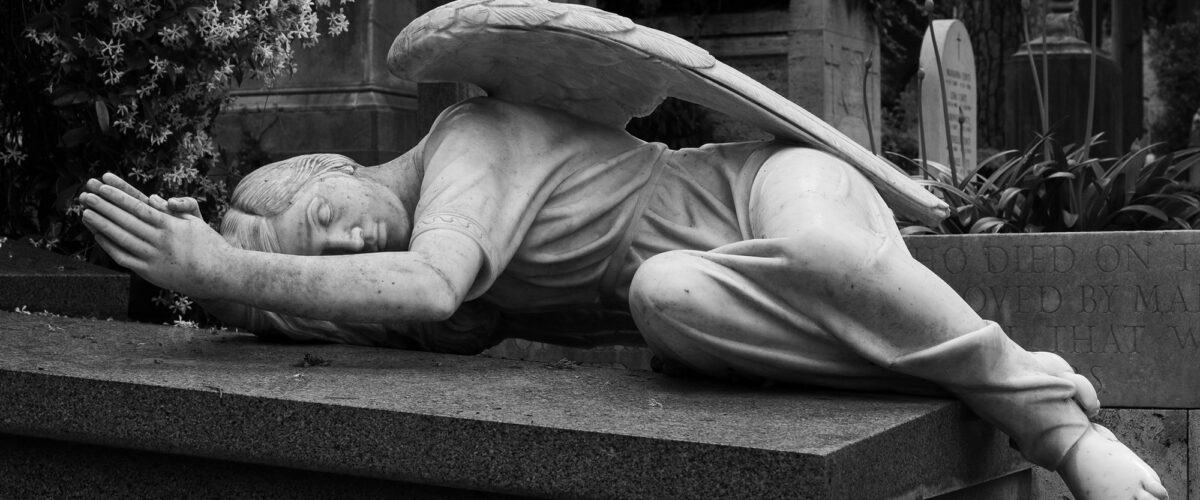“I did not want to weep for Martin; tears seemed futile. But I may also have been afraid, and could not have been the only one, that if I began to weep, I would not be able to stop.”
James Baldwin, No Name in the Street (1972)
I had to get up from my space in the Reading Room of the American Library in Paris, pack my things, and walk home. I discovered I could not work on this piece in that public space because I was afraid I was about to put Mr. Baldwin’s fear to public test.
I woke in Paris this morning to the news of elementary school children and a teacher murdered in Uvalde, Texas. I have not yet finished mourning mass shootings in Orange County, Calif., and in Buffalo, N.Y., and countless other outrages in countless other places, and now there is this.

Greg Garrett
I began to see how despair sets in, to understand how people give up, or retreat behind walls, how hope becomes cynicism. I’ve read news accounts and posts across social media in which many people of good conscience say they cannot live with this latest slaughter of the innocents, with the ongoing and unending slaughter, and yet have a growing conviction that nonetheless, we are going to have to learn how.
You know and I know that there is no political will to deal with this ongoing and increasing problem other than throwing thoughts and prayers and empty statements at it, ineffectual actions made hateful because they stand in stark opposition to the normal words and practices of those who utter them. Despite my grief and anger, I do not want to wallow in partisan politics in this piece, but I cannot help but note that it is one party, and only that party, who stand in the way of meaningful reforms.
The governor of Texas, despite sending thoughts and prayers to the murdered and their families in Uvalde, also tweeted of his embarrassment some years ago that Texas didn’t lead the nation in gun sales. One of my senators, despite his also-proffered thoughts and prayers, received more money from the gun lobby in the last senatorial election than any other candidate. My governor and my senator and my past president, all members of that same political party, will be featured at the NRA Convention in Houston, a “celebration of American freedom” half a day’s drive from Uvalde.
I don’t want to wallow in partisan politics, despite the gravity and tragedy of this issue, because this unwillingness to shift partisan viewpoints despite clear contradictions with one’s professed faith is not unique to a single party. It is a hallmark of American identity, our obsession with rights, and our alignment with party and culture sometimes above even our core beliefs.
More than a decade ago, during the course of two years writing a weekly column on theology and politics for Patheos and a book on the 2012 election, Faithful Citizenship, I composed the first of several essays about guns, rights and responsibilities, about how tunneling down to what our faith tells us might be an opportunity to consider what media and party tell us about this issue.
“Jesus doesn’t have anything directly to say about guns, although plenty about how we live with and love each other.”
In those columns and the resulting book, I resolved to think about the issues of the day and of our nation first through the lens of faith, to discern what (if anything) Scripture said directly, to discover how Scripture might be speaking indirectly, and to consider how the wisdom of the church, from Augustine onward, might guide us.
Sometimes I found my long-held beliefs confirmed. Sometimes I found them challenged. But in a radically divided nation (even then; now moreso), I concurred with those who argue that our hope is burrowing down to find areas of core agreement amidst all the anger and argument. I believe that more fervently than ever.
My hope in searching for common ground was that even in an increasingly more secular America, some areas of agreement might be found through consulting the Christian tradition, particularly since many of those who insist on broad Second Amendment rights or freedoms also identify as Christian.
Now, despite a Georgia gubernatorial candidate I read about this morning whose risible tagline was “Jesus, Guns, Babies,” the truth is that Jesus doesn’t have anything directly to say about guns, although plenty about how we live with and love each other.
And while the Bible does sometimes speak of violence in a way that might seem affirmative, the life and death of Jesus — our foundational understanding of who God is and how we are supposed to follow that God — militates against any understanding that weapons are intended to be a way of life for us. Jesus instructs Peter to put away his sword when an armed mob comes to take him, and from the Cross, he says that although he could call down legions of angels sufficient to cleanse the land of the stain of Roman occupation, more than sufficient to take him off the Cross, he does not do so. Salvation does not come through violence or taking up arms.
“Salvation does not come through violence or taking up arms.”
Also foundational for Christians is the two-fold commandment, love God and your neighbor, which Jesus says embodies all the law and the prophets. As Augustine glossed this essential teaching, we most clearly love God through loving our neighbor, for if we can’t love our neighbor who is visible to us (or should be), then how can we expect to love something invisible?
When we consider the two-fold commandment, I wonder if we might find our ability to follow it hindered by our insistence on rights and freedoms? If we hold our right to bear arms as somehow even more important than our responsibility to preserve the lives and wellbeing of our neighbors?
Americans of all parties and none have made a secular god of rights and freedoms. But I offer this call to all people of faith and all those of good will: to balance their embrace of rights with the call to love and serve each other.
“Americans of all parties and none have made a secular god of rights and freedoms.”
I’m not arguing the minutiae of guns and policy today. I’m not advocating taking away people’s ability to hunt or to protect themselves. I don’t even want to. But I am arguing that pursuing the right to bear arms to its ultimate end — a nation with more arms than we actually have American citizens — has taken away the right of many Americans to live without fear or anguish, and sometimes taken those lives themselves.
It is indifference to our neighbor, not love.
If our personal rights become more important than our responsibilities to our neighbors, then we not only fail each other; we fail to live out our Christian faith, the faith which should offer a core area of agreement and union.
I am afraid — and I cannot be the only one — to live the rest of my life in a violence-scarred America where I might begin weeping and be unable to stop.
Surely there is another way.
A better way.
And I believe we find it not through partisan politics, but through the faith that offers hope that we can do and be better.
May the peace of Christ which passeth all understanding be with us as we grieve.
And may the strength of Christ undergird us as we seek to love.
Greg Garrett is an award-winning professor at Baylor University. One of America’s leading voices on religion and culture, he is the author of more than two dozen books, most recently In Conversation: Rowan Williams and Greg Garrett and A Long, Long Way: Hollywood’s Unfinished Journey from Racism to Reconciliation. He is currently administering a research grant on racism from the Eula Mae and John Baugh Foundation and writing a book on racial mythologies for Oxford University Press. Greg is a seminary-trained lay preacher in the Episcopal Church and canon theologian at the American Cathedral of the Holy Trinity in Paris. He lives in Austin with his wife, Jeanie, and their two daughters.
Related articles:
Mass murder and the soundtrack of our lives | Opinion by Justin Cox


